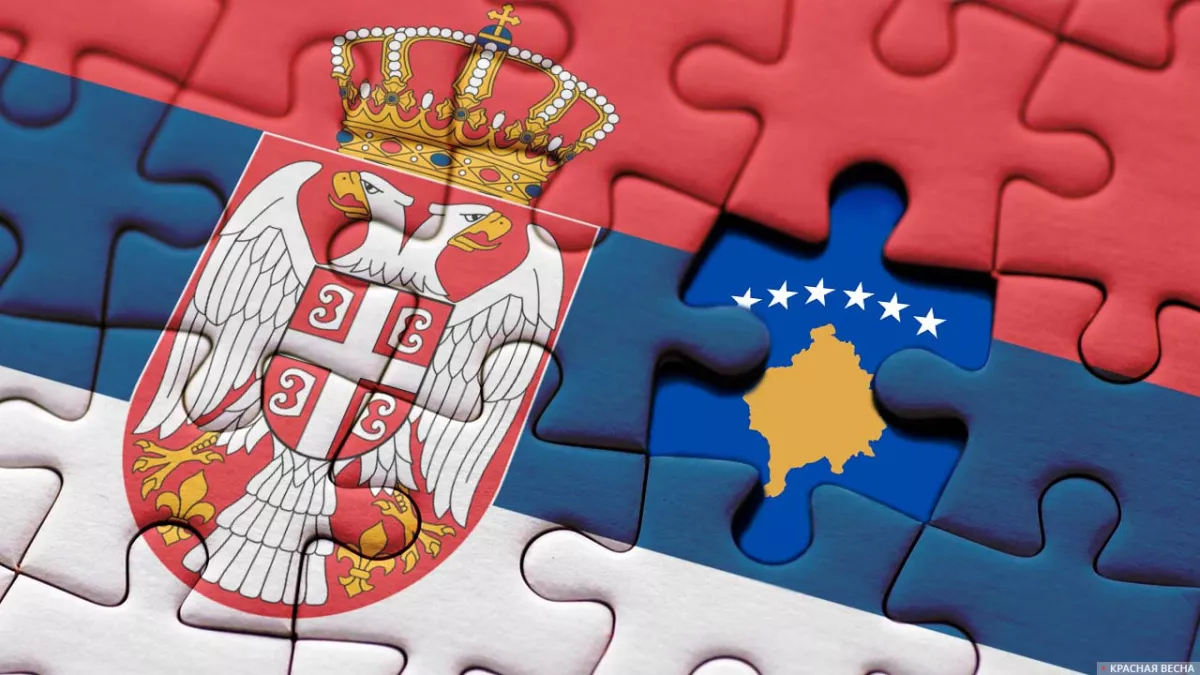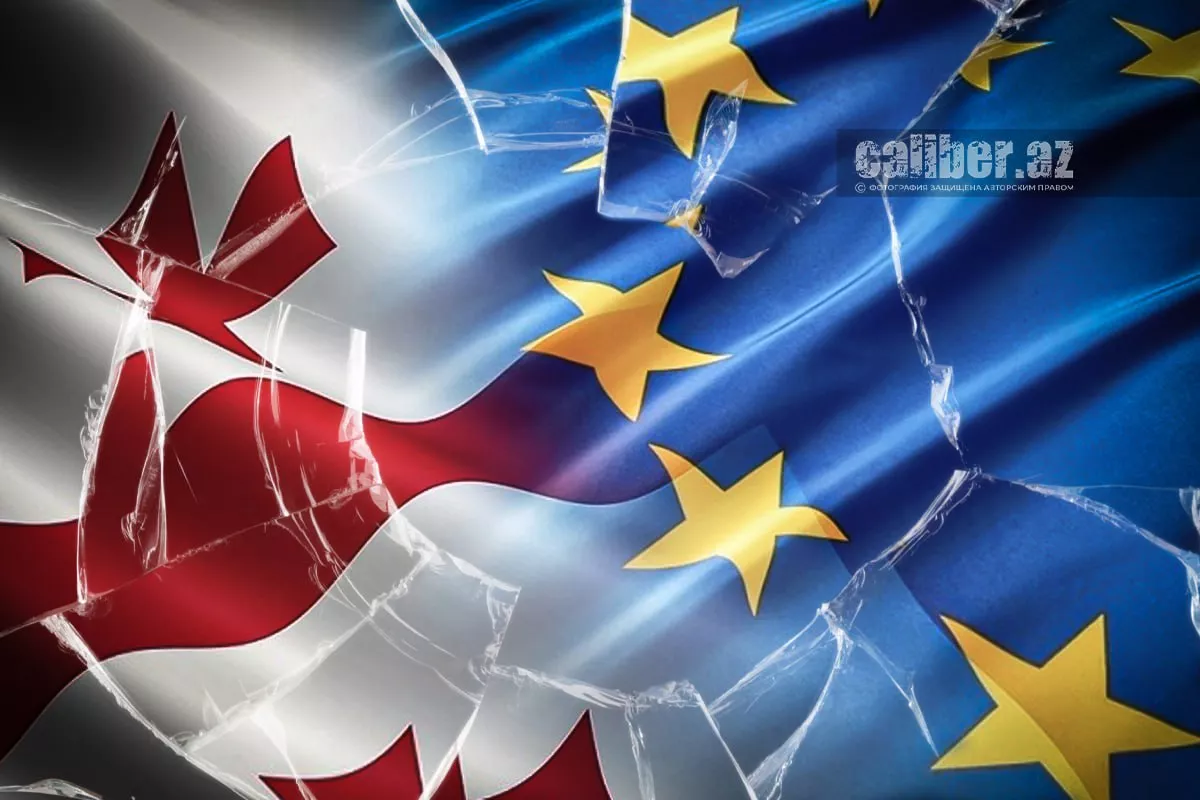Serbia and Georgia in Brussels’ crosshairs A lottery by the EU method
Recently, the European Union announced its foreign policy priorities regarding the bloc’s expansion over the next five years. At a press conference in Brussels, High Representative for Foreign Affairs and Security Policy Kaja Kallas, presenting the European Commission’s (EC) annual Enlargement Report, named several potential countries considered promising candidates for membership by 2030. According to international media, she stated that by that time, Albania, Montenegro, Moldova, and Ukraine could join the EU. “Joining the EU remains a fair, tough and merit-based process. But new countries joining the EU by 2030 is a realistic goal,” she said, emphasising that, in the Commission’s view, these states have the best prospects.
Meanwhile, at the same press conference, EU Commissioner for Enlargement Marta Koc declared that the European Commission supports Montenegro’s ambition to complete accession negotiations by 2026, Albania’s by 2027, and Ukraine’s and Moldova’s by 2028, despite the fact that, in practice, talks with Kyiv and Chișinău have not yet formally begun.
In May of this year, European Council President António Costa told Euronews that EU enlargement in the Western Balkans is one of Brussels’ priorities, emphasising that the EU must not lose control over this key region to maintain stability in Europe.
However, the EU’s stance on Serbia and Georgia draws particular attention in this context. Specifically, Kaja Kallas criticised Serbia for its drift away from European standards and highlighted an even sharper decline in democracy in Georgia.
Belgrade was urged to achieve a fuller alignment of its foreign policy with that of the EU. In practice, this means joining EU sanctions against Russia and recognising Kosovo’s “independence.” On these issues, the positions of the European Union and Serbia diverge sharply.

To call things by their proper names, the main source of the European Union’s serious dissatisfaction with Serbia is Belgrade’s independent foreign policy, which is guided by its national interests. Evidence of this can be found in a non-binding resolution on Serbia previously approved by an overwhelming majority in the European Parliament. The resolution notes that, despite certain progress in the economic sphere, the country has not done enough to establish domestic political dialogue, uphold the rule of law, or combat corruption.
In this context, it is also worth recalling Kallas’ statement made in May this year in the Serbian capital, in which she said that the country’s European future depends on the values it chooses to uphold. Speaking in Pristina, she emphasised that “the normalization of relations between Serbia and Kosovo is fundamental for their European future.”
However, the Serbian side has openly demonstrated an unwillingness to follow the EU’s requirements, which puts the country’s prospects for EU membership in serious doubt.
As for Georgia, the likelihood of it joining the EU in the medium term appears even lower. At least, this is the conclusion suggested by EU Commissioner for Enlargement Marta Koc’s remarks that the European Commission plans to introduce a new visa mechanism in November to pressure Georgia to return to the path of EU integration.
Background: Georgia applied for EU membership in March 2022, following Ukraine and Moldova, which were granted candidate status in June of that year. However, Georgia became a candidate only in December 2023. Later, the European Commission outlined “nine steps” that the republic must take to qualify for membership. Among them were commitments to address political polarisation, involve the opposition more actively in political processes, and ensure free, competitive, and fair elections.
In April 2024, relations between Tbilisi and Brussels sharply deteriorated after the adoption of the so-called “foreign agents” law. The European Union suspended Georgia’s accession process and froze part of its financial assistance to the country, including €30 million allocated to the Georgian Ministry of Defence from the European Peace Facility. In April 2025, the Georgian parliament passed the “Foreign Agents Registration Act” in its final reading — a measure analysts described as an even stricter version of the previous “Transparency of Foreign Influence” law.
The EU condemned the law, declaring it incompatible with democratic values and warning that it would negatively affect Georgia’s European integration. The European Parliament, in turn, refused to recognise the results of the 2024 parliamentary elections, which were won by the Georgian Dream party. For its part, the Georgian government has removed EU membership negotiations from its political agenda until 2028.

It turns out that Brussels did not mince words: the latest EU Enlargement Report clearly states that Georgia’s accession process has effectively been halted since 2024 — the country remains only a nominal candidate for membership.
Commenting on Tbilisi’s bleak EU prospects, the EU Ambassador to Georgia, Pawel Herczyński, told local media: “The enlargement report is absolutely clear. Georgia is not on the trajectory to become an EU member state, neither in 2030 nor later. With democratic backsliding, anti-European disinformation repeated by top officials, and the erosion of fundamental freedoms upon which the EU is based, Georgia will not be able to become a member of the European Union.”
The Georgian authorities’ reaction has been notably restrained, which is telling in itself. The Ministry of Foreign Affairs stated that the EU’s enlargement report regarding Georgia did not come as a surprise. Furthermore, the ministry claimed that the document had been used to express unfounded negative assessments and political speculation.
“Some of the EU institutions’ steps and statements regarding Georgia, aimed at influencing the country’s internal politics and contradicting both the spirit of Georgia–EU relations and our common interests, are cause for concern,” the Georgian foreign ministry said in a statement.
Thus, through the lens of the current situation with Georgia and Serbia, it is clear that the prospects for EU membership are highly uncertain for countries pursuing an independent foreign policy. A striking example of this is Türkiye, whose EU accession negotiations remain at a standstill.
However, by closing the door on self-sufficient and strong states, the European Union risks losing actors capable of reinforcing its authority. It is therefore time for the EU to reconsider its biased approach, lest it finally undermine its image in the international arena.








